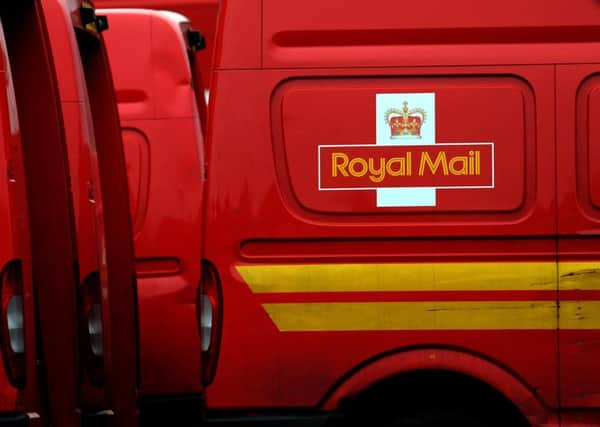Royal Mail sale caution ‘cost taxpayers millions of pounds’


A spending watchdog found Ministers set a low share price because their priority was to sellthe business quickly.
The National Audit Office (NAO) has also criticised the Government for not holding onto more shares and selling them later to take advantage of the rising price.
Advertisement
Hide AdAdvertisement
Hide AdThe shares costing 260p were snapped up by investors who saw them climb to 455p on the first day of trading - an instant profit of £750m.
At their highest point since the flotation in October, shares traded at 618p. Yesterday they were changing hands for around 564p.
The Government was found to have given some City institutions a larger number of shares in the hope they would be long term investors.
However, more than half of those shares were sold within a few weeks “at a substantial profit”.
Advertisement
Hide AdAdvertisement
Hide AdAmyas Morse, head of the NAO, said: “The Department was very keen to achieve its objective of selling Royal Mail, and was successful in getting the company listed on the FTSE 100.
“Its approach, however, was marked by deep caution, the price of which was borne by the taxpayer.
“The Government retained 30 per cent of the company. It could have retained even more and allowed the taxpayer to participate further in the rapidly increasing share price and thus limit the cost of to the taxpayer of its cautious approach.”
The NAO report, published this morning, says the Government could have held on to shares worth £363m while still putting more than half of the company into private hands.
Advertisement
Hide AdAdvertisement
Hide AdIt found Ministers prioritised selling Royal Mail within a short timescale and were concerned about the threat of industrial action by staff to the flotation.
Properties worth £200m were included in the Royal Mail prospectus but “the NAO does not believe that the basis on which Royal Mail was sold recovered this value.”
The NAO report acknowledges Royal Mail is now a profitable business and the sale has meant the taxpayer is unlikely to need to support it financially in the future.
Business Secretary Vince Cable said: “Achieving the highest price possible at any cost and whatever the risk was never the aim of the sale.
Advertisement
Hide AdAdvertisement
Hide Ad“The report concludes there was a real risk of a failed sale attached to pushing the price too high.
“And a failed sale would have been the worst outcome for tax payers and jeopardised the operation of Royal Mail going forward.”
Recommendations by the NAO included looking at alternative methods of accessing equity markets and reducing reliance on professional advisers, which the report said cost £12.7 million.
Shadow Business Secretary Chuka Umunna said: “When Royal Mail was privatised, Vince Cable described the huge rise in its share price as ‘froth’, but since then it has continued to rise.
“He and David Cameron have serious questions to answer on the hundreds of millions of pounds they have lost British taxpayers and cannot duck responsibility for what has happened.”